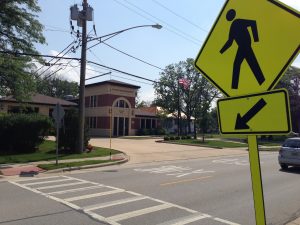Commuters often take public transit, use rideshare apps, or hop in a taxi to avoid the dangers of a possible Illinois auto accident. However, a recent news report demonstrates that no passenger is ever completely safe, no matter how they are traveling on the road. According to a local news source, a man was killed when the taxi he was riding in collided with another vehicle while making a left-hand turn in Chicago near the 100 block of North Wacker Drive. Emergency vehicles responded to the crash, and the passenger was transported to a nearby hospital with internal injuries. The man later died as a result of the injuries he sustained in the crash. Evidently, the driver of the taxi and two people from the other vehicle involved were not injured in the crash.
Although the article did not mention if the passenger in the taxi had been wearing a seat belt, Illinois state law curiously exempts backseat taxi passengers from wearing seat belts. Although the law does not require backseat passengers to buckle up, it is essential for all drivers and passengers to wear a seat belt whenever a vehicle is running. Passengers in the backseat of a car should be especially diligent about wearing a seat belt, as back-seat passengers are not usually protected by airbags, and are at an increased risk of being seriously injured or killed if they are not wearing a seat belt.
When a passenger is injured or killed in an accident, several parties may share responsibility for injuries and damages related to the crash. Whether the driver of the vehicle carrying the passenger was at fault, or the collision resulted from the negligence of another driver on the road, it is almost sure that the injured passenger was not at fault. In cases involving public transit crashes, taxi accidents, or rideshare collisions, there may be several insurance companies and other parties who could be financially liable for the crash. Because of the complicated relationship between taxi or rideshare companies, their drivers, and any personal or other insurance companies representing taxi drivers as well as other drivers potentially involved in an accident, accident victims may struggle to receive fair compensation for their losses in the event of an accident.
 Chicago Car Accident Lawyers Blog
Chicago Car Accident Lawyers Blog

















